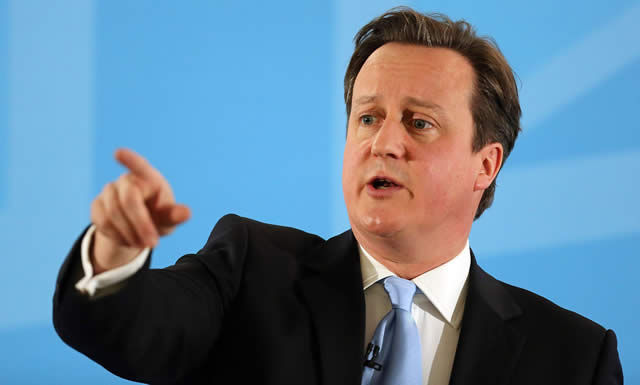British EU vote unnerves world leaders, markets

Britain plunged deeper into political crisis on Sunday after its vote to leave the European Union last Thursday, leaving world officials and financial markets confused about how to handle the political and economic fallout. Britain’s Prime Minister David Cameron is expected to stay on in a caretaker role until the UK Conservative Party elects a new leader in about three months, after he resigned on Friday.
But he has refused to invoke Article 50 of the EU’s Lisbon Treaty, which allows for two years of exit negotiations, leaving little clarity about how or when Britain will begin negotiations with the EU on a new relationship.
In the referendum, voters ignored Cameron’s appeals to stay in the EU by 52 percent to 48 percent, delivering the biggest blow since World War Two to the European project of forging greater unity. Cameron is expected to meet the other 27 EU leaders at a summit in Brussels today.
British Finance Minister George Osborne, who had warned during the campaign that a “Brexit” would cause financial market volatility, scheduled a statement yesterday to provide reassurance about “financial and economic stability”.
Boris Johnson, the leading “Leave” campaigner, former London mayor and favourite to become the next Conservative prime minister, sought to calm fears about Britain’s economic future, saying it would continue to have access to the EU single market.
But Johnson did not explain how he planned to secure free trade with Europe without sacrificing some of the main promises that “Leave” campaigners made to voters, notably that Britain would be able to cut immigration and free itself from regulations set in Brussels. .
Cameron’s Conservatives have been at war with each other for years over whether to quit the EU. But the vote to leave a bloc that Britain joined 43 years ago also pushed the UK Labour party into chaos over the weekend.
Senior Labour Party parliamentarians withdrew backing for their leader after traditional supporters rejected the party’s pro-EU stand in droves. Scotland’s leader promised she would do whatever it takes to keep her strongly pro-EU country in the bloc, including potentially vetoing legislation on a British exit.
French President Francois Hollande declared there was no going back on “Brexit”, saying: “What was once unthinkable has become irreversible”. Hollande said France and Germany must use their strong friendship to seize the initiative, warning that “separated, we run the risk of divisions, dissension and quarrels”.
He and Chancellor Angela Merkel discussed the issue by phone and an aide said they were in “full agreement on how to handle the situation”. The EU is preparing to move its European Banking Authority from London following Britain’s vote to leave the Union, EU officials said on Sunday, setting up a race led by Paris and Frankfurt to host the regulator.
The move underlines how the City of London can expect to be frozen out of EU financial regulation, and possibly from Europe’s capital markets, depending on the terms of Brexit. While those who argued for Britain to leave the EU said the financial industry would thrive without EU shackles, some of its biggest employers, including JPMorgan (JPM.N), are scouring Europe to find new locations for their traders, bankers and financial licences.
The United States, which had made clear it wanted Britain to stay in the EU, also showed signs of unease. US Secretary of State John Kerry visited Brussels and London yesterday. A senior official said Kerry would stress the importance of other EU members not following Britain to further weaken the bloc. – AFP











Comments